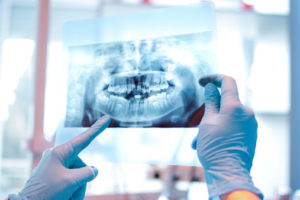Cavities

Have questions about cavities? Our dentists took some time to share information and answer common patient questions to help educate about the causes of cavities as well as share some tips for cavity prevention. View the table of contents below to learn more or find your question and get an answer from one of our dentists!

The following content was provided by Dr. Garrett Solecki, General Dentist, and has been medically reviewed for accuracy. Some relevant links have been added to audio transcripts to provide resources for additional information.
Table of Contents:
Click on a question below to be taken directly to that answer.
What is a cavity?
Answer provided by Dr. Garrett Solecki. Transcript included below.
Dr. Solecki:
In the dental world, we call them caries, and a caries or cavities is a disease process that happens on the surfaces of our teeth. A cavity is a disease and it’s one of the single most common diseases found in children and adults in the US. Most patients think that they are caused from sugar, which is only part of the puzzle.
We have our teeth in our mouths, and they’re made up of a mineralized structure. We have bacteria in our mouths. There’s some good and some bad. Some of the bad ones that caused cavities use that sugar as energy, and they create acid as a byproduct, and that acid will attack that tooth and cause that tooth to demineralize, which causes the cavity. When it gets to a certain extent, then it starts to cavitate or it makes a large enough hole that is something that needs to be treated.
How do I know if I have a cavity?
Answer provided by Dr. Garrett Solecki. Transcript included below.
Dr. Solecki:
That’s a tricky question because you usually don’t know. That’s why we recommend six-month checkups and taking x-rays when you come to the dentist. Sometimes if you have a cavity near the front of your mouth, they can look brown like a stain, but stain does not always mean decay, so it’s good to check with a dental professional. If a cavity does get big enough and reaches the center of the tooth where you have the nerve, you’ll start to feel pain, in which case it’s usually more expensive and more difficult to treat.
Why do I keep getting cavities?
Answer provided by Dr. Garrett Solecki. Transcript included below.
Dr. Solecki:
There are many factors that go into cavities, but if a patient finds themselves suddenly getting cavities without a history of prevalent decay, it’s usually caused by a sudden change in diets or stress, which can alter the bacteria in the mouth and which can increase the acid and cause more cavities. If you’re taking a lot of medications, that can also cause dry mouth, which reduces the amount of buffers you have in your mouth to protect yourself from those acids.
How can I prevent cavities?
Answer provided by Dr. Garrett Solecki. Transcript included below.
Dr. Solecki:
So there’s three main factors into getting cavities. If you picture a Venn diagram with three circles, you’ve got the tooth, you’ve got the bacteria and you’ve got diet. So you can alter any one or more of those three things. So for example, with the teeth you can… If patients have a lot of grooves in their teeth or they’re rougher, they’re going to have a tougher time keeping that bacteria away. So starting off with brushing your teeth three times a day is a great start, which is a great way to mechanically remove that bacteria.
Now there’s also chemical ways to inhibit that bacteria, which include things like fluoride. So fluoride is found in our water, in our toothpaste, and that inhibits the bacteria from working and using those sugars. If needed, we can prescribe a higher fluoride toothpaste to patients who need it as well.
In terms of diet, reducing sugars is a great way to prevent cavities and frequency of the sugars is more important than the quantity. So if you have a bottle of soda and you’re sipping on it slowly, all day long, you’re going to do more harm to your teeth than if you were to just chug it in two big sips there.
Interviewer:
And why is that?
Dr. Solecki:
So it’s about the exposure time of those sugars to the bacteria. So if you do it really quickly, they can’t use as much of that sugar in what you eat and what you drink.
Can a cavity go away on its own?
Answer provided by Dr. Garrett Solecki. Transcript included below.
Dr. Solecki:
Once you have a true cavity, it’s there to stay until you get a filling to remove that. Cavities don’t develop overnight. They usually take about two years to get a white spot lesion, which is kind of like the beginning of a cavity, and then it takes about four years for a full cavity, a true cavity that you’d want to treat with a filling.
What happens if a cavity is left untreated?
Answer provided by Dr. Garrett Solecki. Transcript included below.
Dr. Solecki:
If a cavity is left untreated, the decay will only get larger. It will eventually reach the center of the tooth where your nerve is. And then once it’s in the nerve, it travels down to the root of your tooth. Once there, there’s nowhere to go. So you get swelling, you get a lot of pressure. It can be very painful in which you’ll need some antibiotics or a root canal.
What foods should I avoid to prevent cavities?
Answer provided by Dr. Garrett Solecki. Transcript included below.
Dr. Solecki:
Sodas are the biggest one. Any sugary drinks, because they can get between your teeth and they’re sticky and they will stay there. If you want a food that you’re looking to eat as a snack, that’ll be good for your teeth, you probably want to try cheeses or dairy. They have a lot of calcium and phosphate, which can help re mineralize your teeth after they’ve been attacked by acids from those bacteria.
Can I drink diet soda to avoid cavities?
Answer provided by Dr. Garrett Solecki. Transcript included below.
Dr. Solecki:
You’ll have less sugar, so theoretically, less cavities, but there’s still a lot of acid within that soda, which you can get a lot of erosion on your teeth from.

